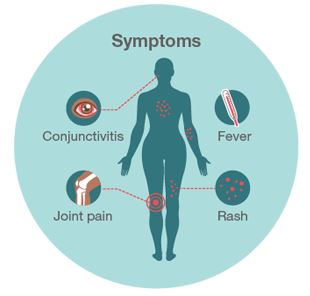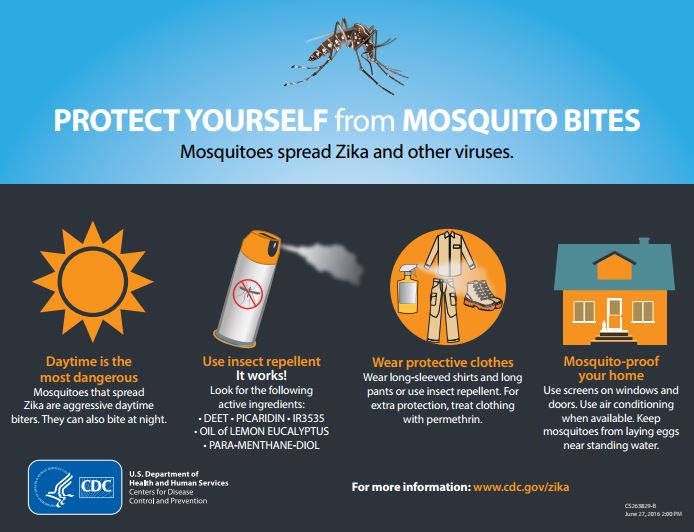A case of non-travel related Zika virus has been reported in Pinellas County, though officials don’t believe local mosquitos are infecting people in the Tampa Bay area. Epidemiologists are working to gather the history, but the case is believed to have been acquired in Florida. Today, we’ll share an overview of the Zika virus, symptoms to watch for, and prevention tips.
What is the Zika virus?
The Zika virus was first identified many years ago in Uganda. It is transmitted by mosquitos (and via sex with an infected person or by a pregnant woman to her fetus). Starting in the late 2000s, the virus spread for the first time outside of Africa and now there is a long list of countries with outbreaks. This year, the CDC has confirmed cases in the U.S., with a significant outbreak in the Miami-Dade area of Florida. There is no vaccine or medicine for Zika virus, and symptoms are generally mild and flu-like. It has not been considered a serious disease in the past, and symptoms usually run their course in about a week. However, it has been connected to microcephaly or other serious birth defects in babies born to infected mothers, as well as to miscarriage.
Additionally, it has the potential to be dangerous for elderly individuals and others with compromised immune systems. Zika virus has been associated with developing Guillain-Barré syndrome. In one case, an 81-year-old French man who tested positive for the virus after a trip to the Pacific Islands later died of meningoencephalitis (an inflammatory condition).
Zika Virus Symptoms
The most common symptoms of Zika virus are:
- Fever
- Rash
- Joint pain
- Conjunctivitis (red eyes)
Additionally, some people experience muscle pain and headache. Many people don’t experience any symptoms or do not notice the symptoms due to lack of severity. The symptoms generally subside within a few days.
Preventing Zika Virus
The most important step is to protect against mosquito bites (these mosquitos also carry other diseases like dengue fever). Follow the steps in this graphic for protection.
Make sure to use an EPA-registered mosquito repellant with the active ingredients suggested (DEET, Picaridin, IR3535, Oil of Lemon Eucalyptus, Para-menthane-diol). For those who prefer to stay away from DEET and many of the chemical formulas, the oil of lemon eucalyptus can be a good solution and can be found in convenient mosquito-repellant bracelets such as this 4-pack with refills to protect your whole family and these bracelets and patches (you can find many other versions on Amazon and at local suppliers).
If you will be traveling to other countries/areas, check the travel warnings. Pregnant women are advised to avoid areas with active outbreaks, but obviously the outbreaks will spread and evolve into new areas over time. If you are pregnant and have travel plans, you may want to check into travel insurance to find out about coverage in the event that an outbreak prevents your travel.
Protect yourself during sex. The Zika virus can be transmitted sexually from an infected person (who may not know he/she has the virus). Condoms and other barriers can reduce the risk. Not having sex eliminates this risk.
What To Do if You Suspect You May Have Zika Virus
A blood or urine test can confirm the virus. There is no specific medicine to treat Zika, but your doctor can recommend treatment for the symptoms. It is important to get plenty or rest and drink fluids to stay hydrated. Elderly people or those on medications should talk to their doctor and be monitored carefully. Paracetamol or acetaminophen can be used to reduce pain and fever, but aspirin and NSAIDS should be avoided due to risk of bleeding if dengue fever is present.
Health departments in counties with active cases, now including Pinellas, are offering free Zika tests to pregnant women as well as prevention kits. Pinellas County is doing extensive mosquito testing, as well as aggressive spraying/abatement. Find more information on the Pinellas County website.
*Graphics from CDC.gov








